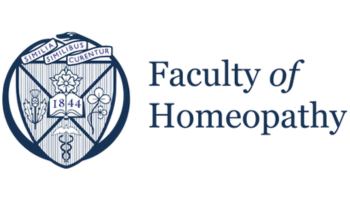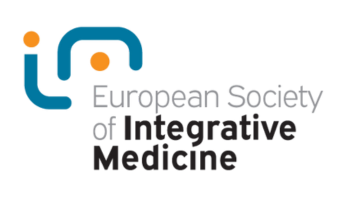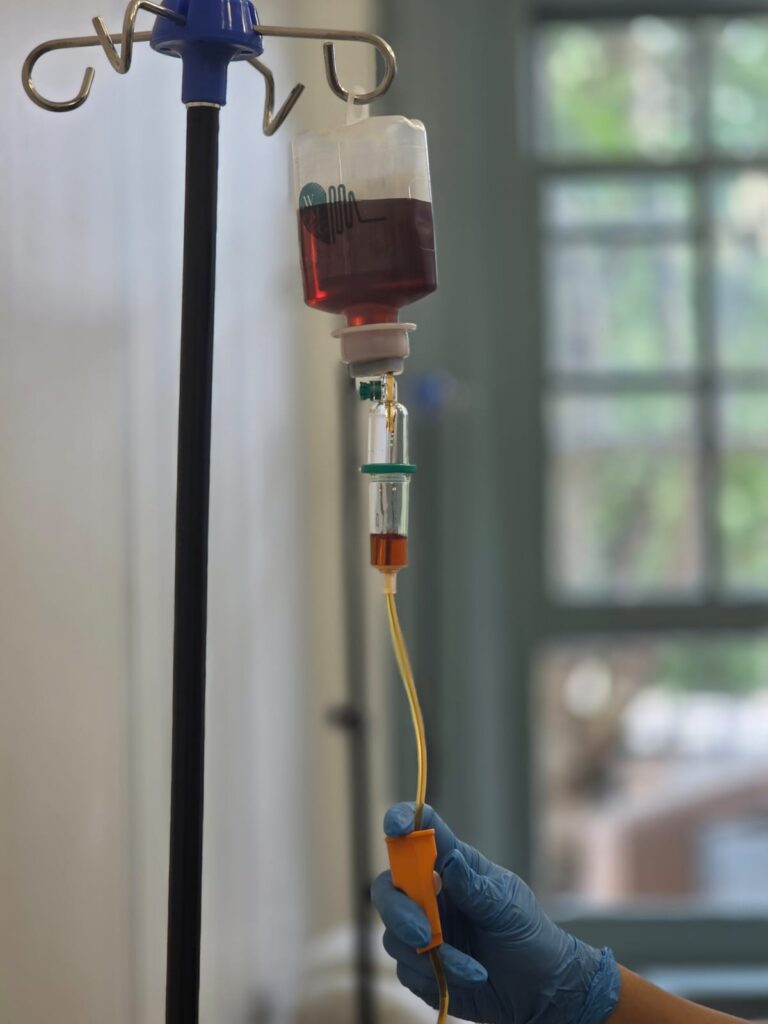Are you based outside of London seeking medical support with a complementary cancer care consultant?
National Services Available
At Wellbeing Medical Group, we have a range of complementary therapies that help to support you when undergoing Western cancer treatments. Mistletoe IV infusion therapy is one of our most common complementary therapies to improve your quality of life.



GMC-Registered Doctors
Research-Backed Protocols
Tailor Designed Approach
Trusted by Thousands

The use of mistletoe as a drug has a long tradition that goes back centuries. Throughout this time the evergreen half-parasite, which is mostly associated with Christmas and Santa, was used by healthcare professionals and doctors for menstrual complaints, epilepsy, ulcers, cardiac insufficiency, high blood pressure and oedemas [1,2]. The use of mistletoe (specifically white-berried mistletoe) entered the cancer setting at the beginning of the 20th century and has been used since for its therapeutic benefits.
Our specialists are highly trained professionals with years of experience delivering safe, effective treatments. We stay up to date with the latest clinical protocols to ensure optimal care and results.
Conveniently located in the heart of London, our clinic is easily accessible by public transport and major roads. We provide a central, discreet setting for premium wellness treatments.
We’ve created a calm, modern space where your comfort and wellbeing come first. From the moment you arrive, our friendly team is here to make you feel relaxed and supported.
We offer flexible scheduling to fit your busy lifestyle. Booking is simple and designed around your convenience.
The Research For Mistletoe IV Infusion Therapy In Cancer Care There is a range of research that shows that medicinal mistletoe can stimulate the immune system to fight cancer cells, with cytotoxic effects on tumour cells observed in animal models [4,5].
Studies in human beings suggest that the use of mistletoe extract alongside appropriate chemotherapy and radiotherapy may improve patients tolerability by reducing their side effects and increasing quality of life, including in pancreatic [7,8], lung[9], colorectal[10], and breast cancers[11]. Studies also suggest that intravesical mistletoe extract is safe and well-tolerated in patients with non-muscle invasive bladder cancer[12] and that mistletoe extract injection may be as productive as chemical pleurodesis in patients with malignant pleural effusion[13].
There is also no current evidence that there is a negative effect on chemotherapy from mistletoe IV infusion therapy [11], in fact, it appeared to reduce disease or therapy-related signs and symptoms (e.g. mucositis, fatigue, pain, headache)[14].

“Mistletoe is among the most extensively studied therapies in integrative oncology. When prescribed under medical supervision, it is considered safe across various routes of administration. It holds significant potential to improve treatment continuity by reducing the need to pause or lower chemotherapy doses due to side effects.”

Fiona
Diagnosis: Adenocarcinoma non-small cell lung cancer
Fiona was diagnosed with non-small cell lung cancer with bone metastases. After completing one session of chemotherapy and immunotherapy, she chose to discontinue further treatment due to the side effects she experienced. Fiona’s objective was to supplement her conventional treatment with an integrative approach. To facilitate this, she promptly provided us with her biopsy results for review, allowing us to design a tailored plan of integrative therapies to support her care. Throughout therapies at Wellbeing Medical Group, she received regular scans from her oncologist, who closely monitored her progress and showed great compassion and care. Fiona was able to successfully achieve her goal of maintaining both quality of life and disease stability.
Graeme
Diagnosis: Adenocarcinoma Oesophagus
Graeme first reached out to Wellbeing Medical Group while awaiting his final biopsy results and diagnosis. Determined to explore both NHS and private pathways, he aimed to secure the best outcomes for his upcoming treatments and surgery.
We collaborated closely with Graeme to develop an integrative care plan tailored to his needs, aligning with his NHS treatment strategy. Graeme’s goals included enhancement of his overall well-being, creating an anti-cancer effect and support towards adverse reactions/side effects to hospital treatment pathways.
Isis
Diagnosis: Hodgkin Lymphoma
Isis approached Wellbeing Medical Group upon receiving her cancer diagnosis, with no conventional treatment having yet commenced. Due to the aggressive nature of her condition, she was about to begin a six-month chemotherapy regimen. Isis’ objective was to integrate complementary therapies alongside her chemotherapy, aiming to mitigate side effects and enhance the effectiveness of the chemotherapy. Given the advanced stage of her diagnosis, Wellbeing Medical Group recommended a more aggressive integrative approach. Isis committed to a comprehensive protocol that included the incorporation of additional anti-cancer therapies to maximize her outcomes throughout her chemotherapy journey. Isis also dedicated several months to expanding her knowledge by engaging with a range of academic literature and research materials.
Contact us for a free consultation.
Mon – Fri 9:00am – 6:00pm

Mistletoe IV infusion therapy multiplies and activates immune cells, helping to boost immunity while undergoing Western cancer treatments. Intravenous mistletoe therapy may help you by:
One of the key benefits of mistletoe IV infusion therapy is that it has an incredibly low risk of side effects. Our compassionate integrative oncologist works with you to help minimise your risk of side effects, we advise all patients to eat before their treatment and to drink plenty of water to support their wellbeing during the infusion therapy.
Our mistletoe IV infusion therapy entails administering an extraction of the mistletoe plant into your body through an IV. An IV is a soft, flexible tube inserted into a vein (normally in your hand or arm) through which a solution is fed. Mistletoe extractions are usually mixed into a water-based diluted solution.
At Wellbeing Medical Group, we have a team of compassionate and experienced cancer care consultants who proudly offer complementary support during your cancer treatment. We personalise your dosages based on your individual needs and provide you with comprehensive care from the moment you get in touch with our facility.
We discuss your needs, medical history and current cancer treatment plan to help provide you with realistic goals and to ensure your mistletoe IV infusion is tailored to you.
Improving your quality of life is our top priority, and our clinic allows you to access integrative treatments in a calming environment so you can sit back and relax as your infusion is underway.
Our registered nurses administer your IV infusion with the supervision of a GMC-registered medical doctor.
At Wellbeing Medical Group, we offer a comprehensive approach to cancer care spearheaded by our experienced team of doctors and cancer care nurses.
Integrative oncology is an approach that combines conventional cancer therapies (such as surgery, chemotherapy, radiation, and immunotherapy) with complementary-integrative therapies, aiming to optimise the patient’s overall well-being and enhance the effectiveness of hospital treatments.
Hospital/conventional oncology focuses on eradicating cancer and controlling its spread, integrative oncology works in harmony with these treatments to support the body’s natural healing processes. Rather than replacing standard cancer therapies, integrative oncology complements them, addressing areas where traditional treatments may fall short, such as managing side effects, supporting immune function, and promoting overall wellbeing. By combining the best of conventional and complementary therapies, integrative oncology aims to improve hospital treatment outcomes, support side effects, and enhance the patient’s quality of life. One of the fundamental principles of integrative oncology is the personalised approach to each patient.
Treatments are tailored to the individual based on their cancer, stage, and response to hospital treatments, as well as their personal preferences, health status, and lifestyle. This personalised care model ensures that patients receive therapies that align with their unique needs, increasing the likelihood of positive outcomes.

Mistletoe therapy acts on many levels: Not only does it help to boost your immune system, but it can also induce apoptosis (the process of natural cell death) in tumour cells, which results in the inhibition of tumour growth.
These are some of the most significant benefits you may experience when you work with our passionate and experienced integrative oncologist for mistletoe IV infusion therapy:
Improved quality of life
Reduced fatigue
Increased appetite (this can often decrease when undergoing cancer treatment)
Regulated body functions such as temperature, sleep and digestion
Reduce nausea and vomiting
Pain alleviation caused by tumours
Reduction of symptoms caused by therapies such as chemotherapy or radiotherapy
Mistletoe extracts can be injected under the skin or infused directly via IV. Here at Wellbeing Medical Group, we specialise in the delivery of this special extract via intravenous infusion along with subcutaneous injection. Although this administration route is off-label, it is completely safe and widely used.
IMPORTANT NOTE: The mistletoe extract requires a medical prescription and medical supervision. Do not trust any product available online without a medical prescription.
Are you based outside of London seeking medical support with a complementary cancer care consultant?